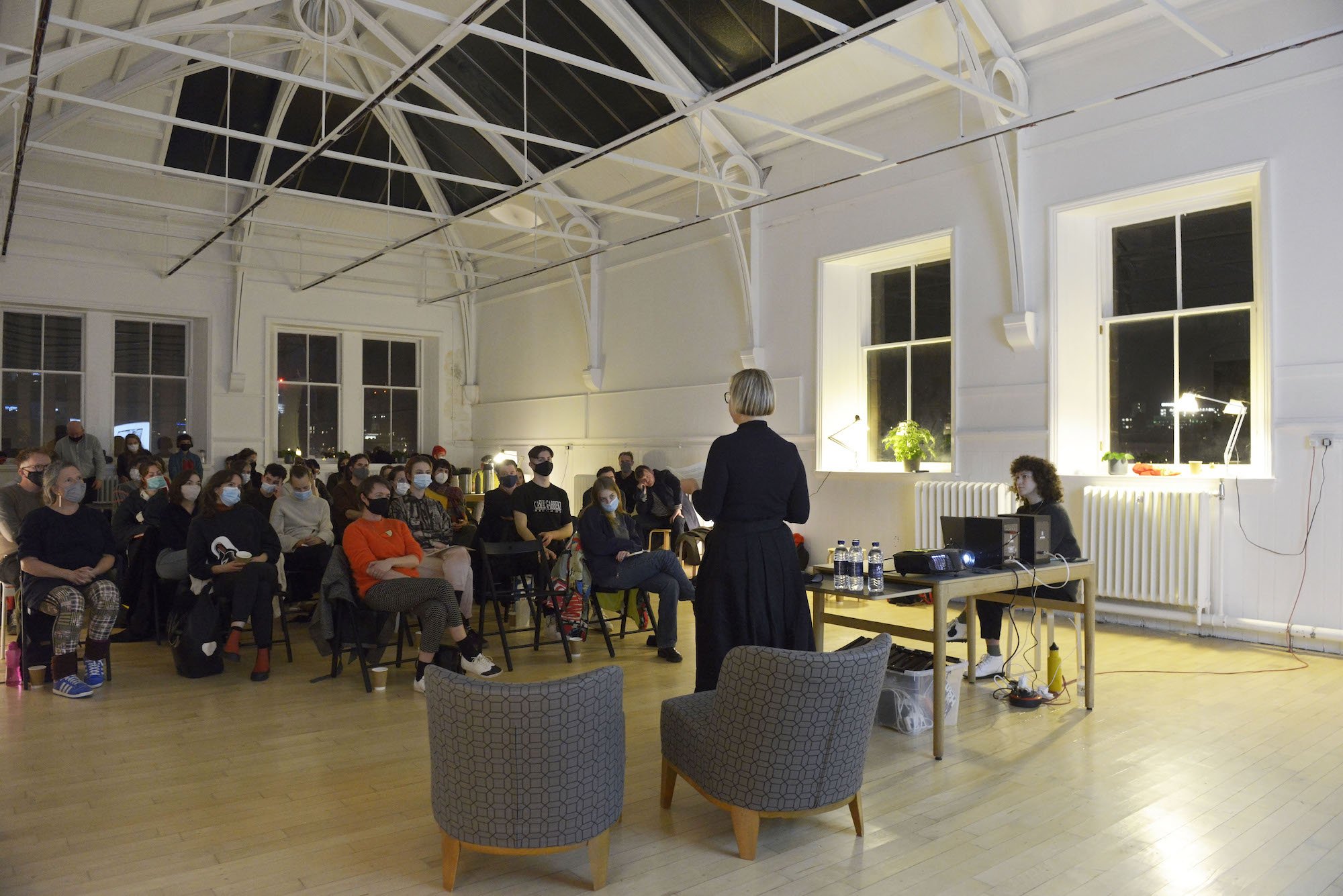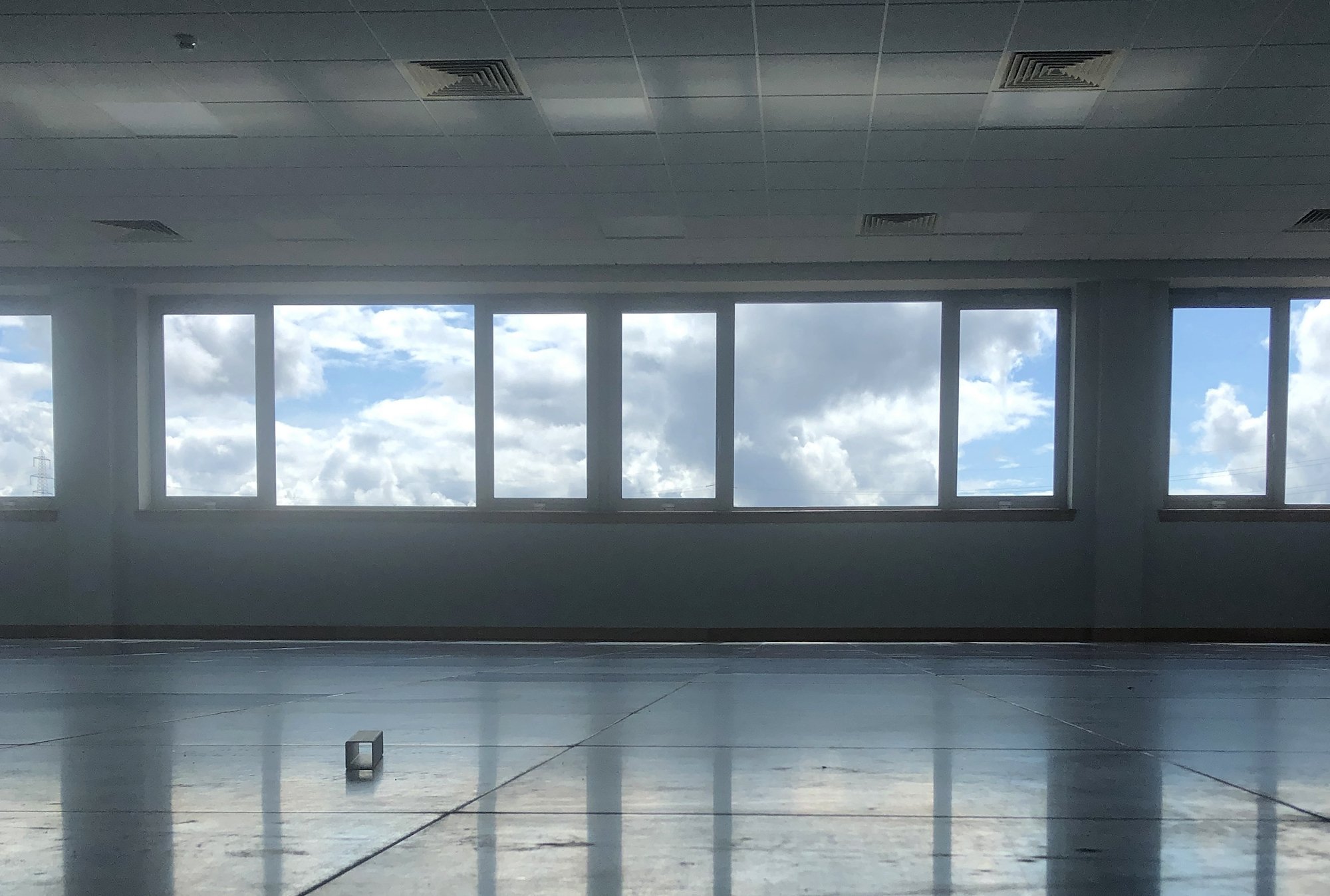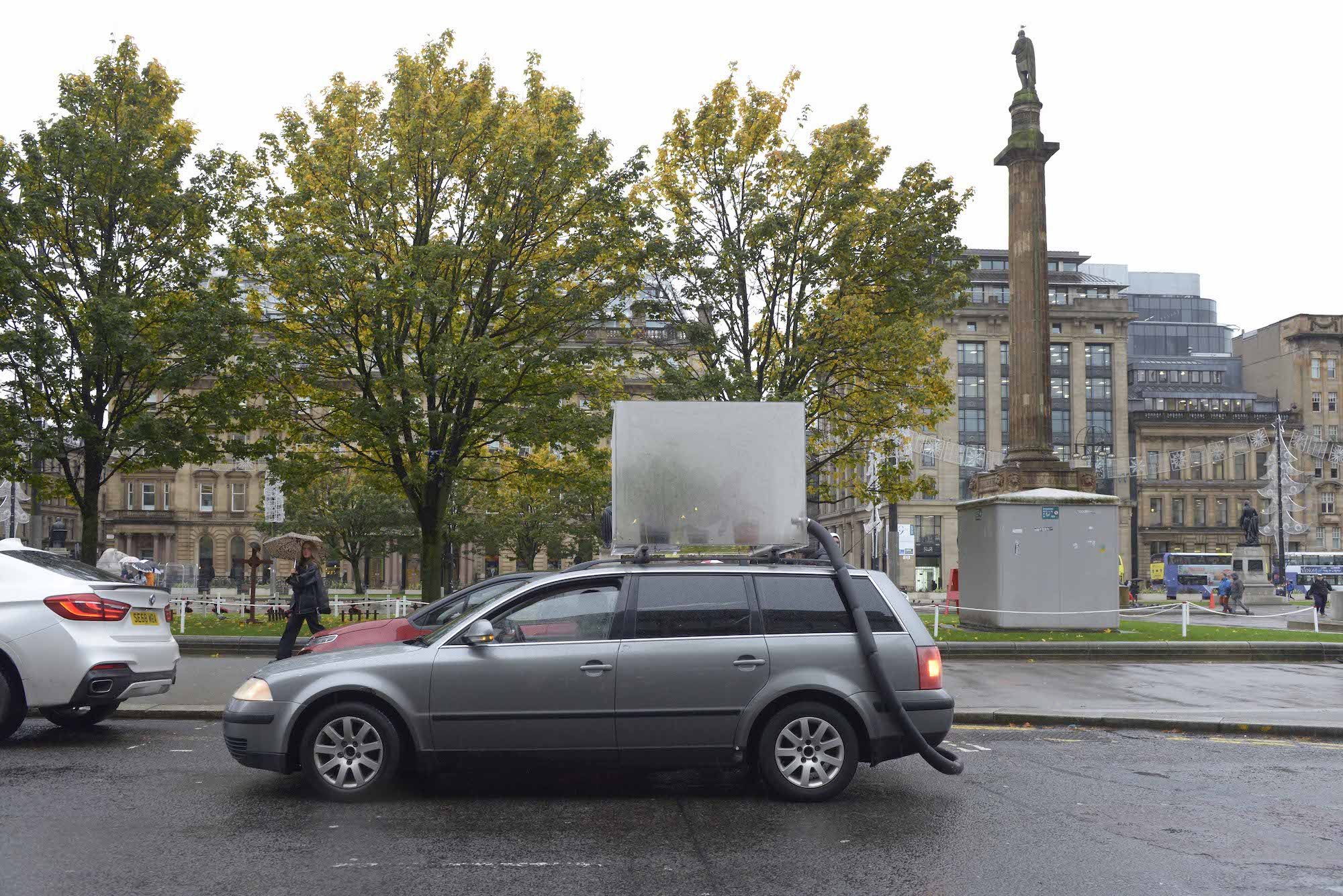Gustav Metzger, ‘Mobbile’ (1970/2021). Courtesy the Gustav Metzger Foundation. Photo: Alan Dimmick.
'The Art of Gustav Metzger and Climate Activism' marks the end of Mobbile’s journeying around Glasgow with an informal discussion about the work of Gustav Metzger, his call for us to ‘Remember Nature’, and the relationship between art and activism.
The discussion includes contributions from artist and writer Ross Birrell, Ula Dajerling, Co-director of the Gustav Metzger Foundation, and artist and co-director of Sculpture Placement Group, Kate V Robertson.
Introduced by Dominic Paterson of the University of Glasgow.
Photo: Alan Dimmick.
About ‘Mobbile’
As the United Nations Climate Change Conference (COP26) takes place in Glasgow, The Common Guild is re-presenting Gustav Metzger’s sculpture, ‘Mobbile’, a modified car that collects and stores its own carbon emissions, originally made in 1970 to demonstrate the destructive and harmful effects of manmade pollutants on the natural world.
Gustav Metzger was a visionary artist and radical thinker. Born in Nuremberg, Germany on 10 April 1926 to Polish-Jewish parents, Metzger came to the UK in 1939 as a refugee. He dedicated his entire creative practice to social activism and challenging our perception of public art as a vehicle for change.
At the heart of his practice, which spanned over 65 years, are a series of constantly opposing yet interdependent forces such as destruction and creation. Metzger’s involvement in anti-nuclear movements such as the Committee of 100 and his life-long activism to combat environmental destruction was fundamental to his provocative questioning of the role of artist and of conventional forms of artmaking and display. His auto-destructive art, meant as a public art form that would instigate social change, sought to provide a mirror of a social and political system that he felt was indifferently progressing towards total obliteration. He also sought to place the emphasis on action over creation of the art object, inviting viewers to interact with some of his work to heighten their impact.
The artist’s legacy is profoundly rooted in activism in both the political and artistic realms. Metzger envisaged art as a means of communicating the futility and horrors of conflict and war. By 1958, Metzger had become heavily involved in anti-capitalist, anti-consumerist movements and the Campaign for Nuclear Disarmament. In 1960, he was a founder member of the Committee of 100 and this led to a short imprisonment in 1961 with Bertrand Russell and other members of the Committee for encouraging mass non-violent civil disobedience.










